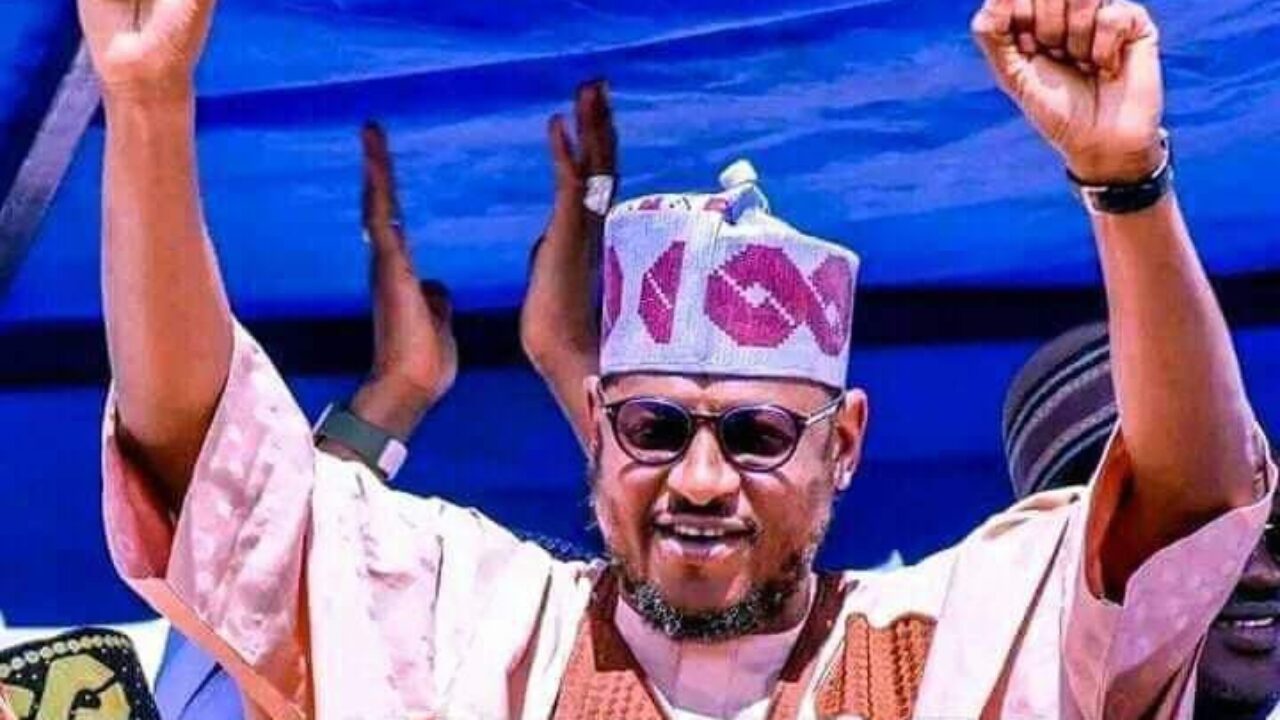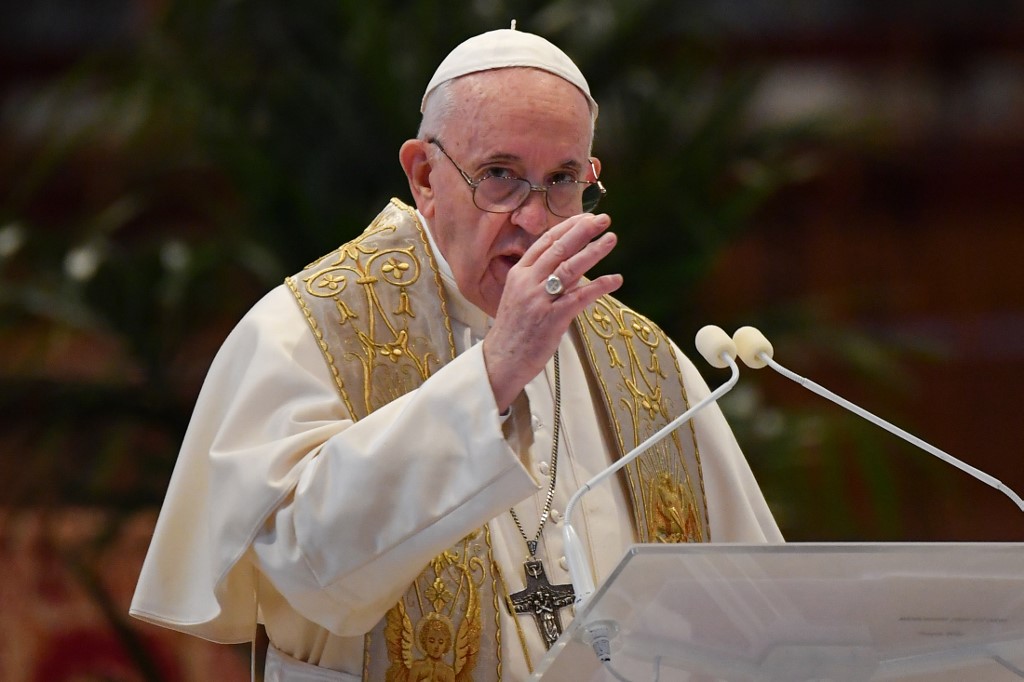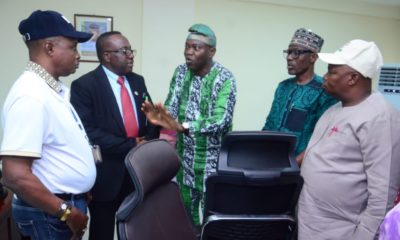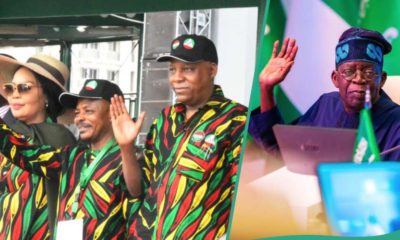NEWS
FG Delaying Implementation Of N70k Minimum Wage

The hands of the Katsina State Government are being held back from implementing the newly agreed N70,000 minimum wage by the Federal Government’s delay in releasing the guidelines.
Katsina State Governor, Dikko Radda, who disclosed this in Katsina on Thursday, however, assured those in the employment of the state of his administration’s readiness to implement the new minimum wage.
ALSO READ: Delta Takes Decisive Steps On New Minimum Wage
Gov Radda gave the assurance at the Public Engagement, 2025 Citizens Budget Participation Process and Launching of Community Development Programme.
He said, “Katsina State is poised to be a leader in implementing the new minimum wage. We are currently awaiting the federal government’s guidelines on the implementation process to ensure a smooth and effective rollout.”
Radda further emphasised his administration’s dedication to enhancing service delivery in the public sector.
“Our commitment to reforming the public service is unwavering. We have introduced measures such as competency tests as a prerequisite for entering public service and assigning leadership roles in public offices. These steps are crucial in ensuring that we have a capable and efficient workforce serving the people of Katsina,” Radda said.
He reassured on the government’s proactive approach to employee welfare and public sector efficiency.
“The administration’s focus on service delivery reforms, coupled with its readiness to implement the new minimum wage, demonstrates a comprehensive strategy aimed at improving governance and the lives of Katsina State residents,” he added.
NEWS
JUST IN: Okpebholo Summons Town Hall Meeting To Address Security Challenges

In a daring move, geared towards addressing prevalent security challenges, Edo State Governor, Senator Monday Okpebholo, summoned a security meeting in Iyamho, Etsako West Local Government Area.
It was gathered that notable attendees at the meeting, on Monday, were prominent political, religious, and traditional leaders, heads of security agencies in the state, and other key stakeholders.
They converged to brainstorm on how to address the peculiar security challenges in Edo North, where security breaches have become almost routine.
Gov Okpebholo, after the meeting held behind closed doors, assured that under his watch, criminal elements will not succeed in distabilizing Edo State.
ALSO READ: Marketers In Anguish, As Dangote, NNPC Ltd War Drag Price To N880/litre
He vowed to deal with them decisively and make the state inhabitable for their activities.
Speaker Edo State House of Assembly (EDHA), Rt. Hon Blessing Agbebaku; former governor of Edo State and Senator representing Edo North Senatorial District, Comrade Adams Oshiomhole; Minister for Regional Development, Abubakar Momoh; former deputy governors of Edo State, Peter Obadan and Philip Shaibu, were at the meeting.
Others were the former Chief of Staff to the President, Chief Mike Ogiadomeh; former Minister for State Budget, Clem Agba; traditional and religious leaders, security chiefs, and other stakeholders in the security sector.
Gov Okepbholo said the security stakeholders’ meeting became necessary to ensure peace and security are maintained across the state, particularly in Edo North.
He noted that political, religious, and traditional leaders attended the meeting, where they all discussed the security challenges facing the people and came up with possible solutions.
Gov Okpebholo pointed out that Edo people should expect a better security situation in the state, as all the deliberations will be properly utilized.
“We came here for a peaceful discussion regarding security, and all our leaders are here, both traditional and religious leaders. The closed door meeting was successful as we had a good deliberation, and discussions were fruitful. We had a perfect discussion. Let us watch it from here. Things will be perfect in our land,” he stated.
Comrade Oshiomhole, after the meeting, commended Gov Okpebholo for his approach to handling security issues in the State.
He appreciated him for the security meeting and assured Edo people that the Gov Okpebholo-led administration will make Edo State safe for all to live and do business.
“Edo State Governor, Senator Monday Okpebholo has come to Edo North to discuss with the people what he has been doing and what he will do in terms of security of lives and property in Edo State.
“The meeting lasted for three hours, and it enabled the Governor to listen to comments from stakeholders and all those present. The Governor gave us the assurance that he will continue to ensure Edo is safe for us all,” he said.
Comrade Oshiomhole said Gov Okpebholo has provided vehicles and motor bikes for the police and other security agencies.
“The Governor recognized that the local people have their own role to play. We have discussed how the community will work with security agencies and forward any information they have to the Governor through available channels.
“The Governor came to meet us and to hear us out. This is the first time a Governor is doing this. I do not think during my time as a governor, I came for security meetings like we have done today.
“The people have expressed their confidence in the Governor. They have reaffirmed their loyalty and commitment to work together with the security agencies so that Afenmai land will be safe,” he added.
Bishop of Catholic Diocese of Auchi, Bishop Gabriel Dunia, appreciated all who came for the stakeholders’ meeting and urged them to collaborate to ensure peace in Edo State.
“We are very much appreciative of our Governor and all the traditional rulers who have come for us all to deliberate on the security of our people and our land. People have spoken their minds on the way forward, and we will work with it to ensure our land knows peace,” he stated.
A traditional ruler from Edo North, His Royal Highness (HRH), Mallam Ali Suleiman, said the security meeting has given stakeholders confidence, while traditional rulers have resolved to collaborate with security agencies and stakeholders to ensure peace in Edo State.
“Today, we are experiencing a landmark event in response to security issues agitating our minds. The Governor came here by himself, not delegating anyone to handle the meeting.
“We have been very worried about the development. The Governor came here himself and also the Minister for Regional Development, Abubakar Momoh and this has given us confidence and we the traditional rulers have resolved to work with security agencies and all stakeholders to ensure the State is safe for us all.”
International News
JUST IN: Vatican Discloses Cause Of Pope Francis’ Death

The Vatican has disclosed that Pope Francis died of a stroke, which caused a coma and irreversible heart failure, according to his official death certificate released on Monday.
The 88-year-old pontiff passed away on Monday morning, nearly a month after being discharged from hospital following treatment for double pneumonia.
In the statement released by the Holy See Press Office, the cause of death was identified as “a stroke, followed by coma and irreversible cardiocirculatory collapse.”
READ MORE: JUST IN: Vatican Mourns As Pope Francis Passes Away At 88
The certification was issued by Dr. Andrea Arcangeli, Director of the Directorate of Health and Hygiene of the Vatican City State.
The medical report also detailed the Pope’s history of health challenges, including “acute respiratory failure caused by multimicrobial bilateral pneumonia, multiple bronchiectases, high blood pressure, and Type II diabetes.”
His death was confirmed through electrocardiographic thanatography.
“I hereby declare,” wrote Dr. Arcangeli, “that the causes of death, to the best of my knowledge and judgment, are as stated above.”
Pope Francis, born Jorge Mario Bergoglio, became the 266th leader of the Roman Catholic Church in 2013 and was widely recognized for his efforts to modernize Church doctrine and promote global social justice.
NEWS
Okpebholo Accounts For Stewardship To Kinsmen

Edo State Governor, Senator Monday Okpebholo, has presented a comprehensive account of his achievements in office so far to his kinsmen at Udomi, Irrua, in Esan Central Local Government Area.
He made his efforts at a grand victory reception at the Udomi Primary School compound to celebrate his electoral success and victory at the tribunal.
Gov Okpebholo highlighted the strides made by his administration in less than six months and reaffirmed commitment to developmental policies and people-centered governance, pledging to continue working for the progress and prosperity of Edo State.
The Governor emphasized that he would lead with the fear of God, uphold transparency, and ensure prudent management of State resources for the collective good of the people.
Gov Okpebholo disclosed that his administration had extended electricity supply to the Udomi-Uwessan community to stimulate economic activities and foster commercial and industrial growth in the area.
ALSO READ: JUST IN: Vatican Mourns As Pope Francis Passes Away At 88
In his words, “We have commenced the development of Edo State. Our initiatives span across Edo South, Central, and North. In Esan land, we have awarded multiple road contracts to open up the region and drive economic growth.”
He also noted the installation of transformers to enhance electricity supply and boost local productivity, adding that communities such as Uwessan, Unewa, and Uromi are benefitting from extensive road construction projects aimed at improving transportation, easing the movement of goods and people, and reducing travel time.
Highlighting his administration’s efforts in education, the Governor said, “We are building new classroom blocks, renovating existing ones, and securing school premises with perimeter fencing to ensure a safe, conducive, and affordable learning environment.”
Gov Okpebholo assured that his administration would remain focused on key development areas, including road infrastructure, education, employment creation, and youth empowerment.
“By God’s grace, Edo State will witness a transformation, and the milestones we have recorded are a testament to our performance,” he added.
He expressed deep appreciation to his kinsmen for their unwavering support, stating, “My performance is rooted in the love and encouragement I receive from my people. Now more than ever, we need your prayers—they are vital to the journey ahead.”
He concluded with a strong declaration of purpose, thus, “We are blessed to have this opportunity to serve. The power we hold will be used for the benefit of Edo people. The freedom we long desired is already here with us.”




















